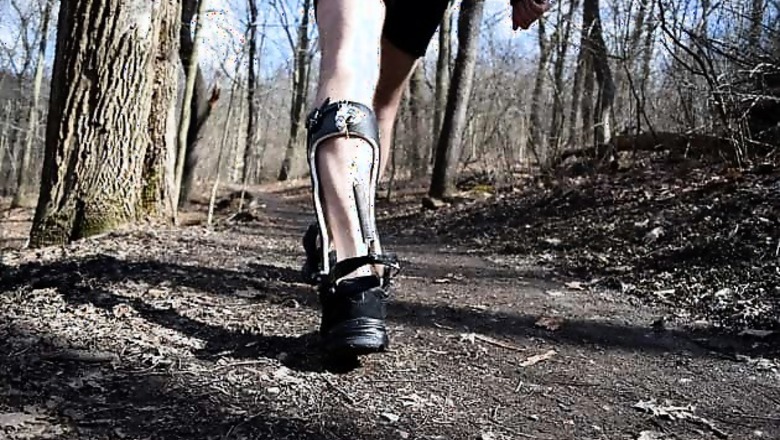
views
Washington: Engineers have come up with a motor-free device to make walking more efficient and easier - something scientists once thought couldn't be done.
The prototype exoskeleton boot runs from just below the knee to the ankle, and when you strap on a pair, you can reduce the energy it takes to walk by 7 per cent. That means you won't burn as many calories.
It's wearable robotics without a motor or a power source. The one-pound device relies instead on a spring to store energy and release it with each step, and a clutch that engages the spring at the proper moment.
The device is a little too bulky to fit under pants legs or socks.
"It doesn't look too bad. Looks kind of flashy," said Carnegie Mellon University engineering professor Steven Collins, lead author of a study published Wednesday in the journal Nature. "When you first put them on, it feels a little bit odd, then after a few minutes you don't really notice it very much."
With an obese nation, making exercise burn fewer calories may not seem like the best idea, but it's not as crazy as it sounds, Collins said.
Studies show that when walking or biking becomes harder, people do it less. So maybe if it becomes easier, people will do it more and burn more calories in the long run, Collins said.
This sort of hydraulic cast could also boost the development of other exoskeleton devices - perhaps for the hips - to help disabled people walk better, Collins and other engineering professors said. The key innovation was coming up with the clutch, Collins said.
He said he has no plans to manufacture or market this particular device but will talk to others who want to do so.
This was more of an engineering challenge than a plan to create the next hot product, Collins said. For a long time, researchers had figured that evolution had already provided humans with the most efficient means of moving. So the question was: Can scientists improve on nature without using motors to cheat?
"Most studies show that human walking is incredibly efficient, so finding a way to make it better is incredibly interesting," said biomechanical engineering professor Andy Ruina at Cornell University, who wasn't part of the study.
Ruina and other outside engineers praised the new device.
"It's totally cool," Ruina said in a telephone interview, while walking and a little out of breath. "I wish I had those."
####




















Comments
0 comment